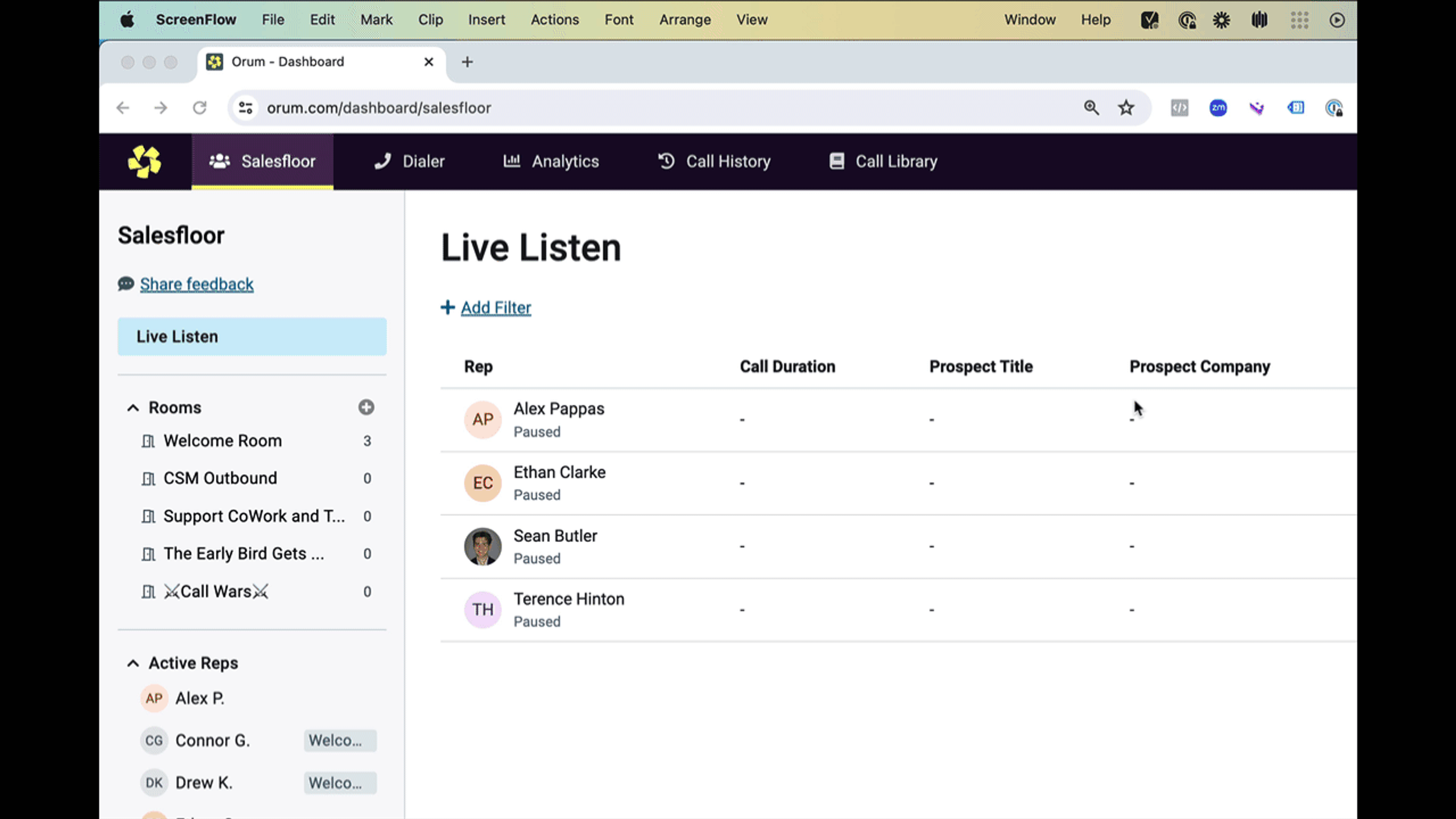How to be a great sales development manager


A frequent career progression for successful sales development representatives is to take on roles in customer success or account management. In many cases, however, the best reps get promoted to become managers of a sales development team. It’s a natural advancement step, when you consider that these reps excel at prospecting, but managing a team goes far beyond knowing how to build pipeline.
As sales managers, managing teams of sales professionals selling a sales platform (say THAT five times fast), Orum’s Nick DeSimone and Taylor O’Brien understand what quality leadership looks like. I asked them for their tips on everything from hiring new employees, to engaging with their team, to avoiding burnout for both themselves and their sales reps. Here’s what they had to say.
How to hire a successful sales team
When it comes to hiring the right person, it’s essential that new managers don’t look at the process as a chore that needs to be accomplished as soon as possible but rather as an opportunity to grow your ideal team made up of players you can see yourself molding into the best versions of themselves. The process can take longer than planned, but will end up being worth the added time (for both you and your future employee) if you put in the effort.
Nick and Taylor noted that, when hiring new sales reps, they look for “X-factors”. The candidate needs something beyond a basic resume. Perhaps it’s something in the way they present themselves, their previous job experience, or their diligence in how they follow up after the interview. The purpose of seeking these traits is to uncover something unique that motivates the candidate to bring their best everyday. It could be life experiences they mention or obstacles they’ve overcome. These traits are something you’ll get a feel for the more times you go through the interview process.
You also need to think about how they’ll fit into the team. With that in mind, Taylor mentioned the importance of looping others into the hiring process. This includes other managers, potential coworkers, and even employees outside of the sales team. You also need to do your part as the hiring manager in setting the expectations of the role. Be open and honest about how they can succeed and lay the groundwork for how they can become a valued member of the team.
Being thorough in the process will lead to hiring impactful employees who ramp up quickly and match the company’s core values and beliefs.
How to have successful meetings with your employees
Hiring the right people is step one in building a successful team. Sustaining that success comes from ensuring your reps continue to thrive and feel valued. You can accomplish this by making your one on one meetings productive in multiple ways.
Taylor shared that he starts every one on one meeting by talking about what’s going on in his reps' lives first. He lets them share as much or as little as they like, but getting to know each other as people helps build relationships between managers and employees. He then moves on to their current workload and recent activity before ending meetings by looking towards the future. He wants reps to always be thinking about their next career steps and this also ensures they know he is thinking about this as well.
Nick added that not every sales organization is going to drive towards the same metrics. Work with the sales leaders at your company to determine which metrics matter the most for your teams. For Orum, it’s about connections and conversations that inevitably build pipeline. It might be something different for your organization. For example, is it prospects added per account? Is it total new accounts? Whatever the metrics are, make sure you’re helping your reps accomplish tasks that will best lead them to hitting those metrics.
Make sure the work being done is impactful
If your reps are similar to Orum’s, they’re spending a lot of time on outbound prospecting. This makes it essential that they set up for success before they begin each day.. Data enrichment in outbound sales is vital.
Phone numbers and email addresses don’t help if you’re not certain it’s the right data. Build processes with your sales enablement team to ensure you have the proper contact data before your reps spend their call blitzes trying to connect with prospects. When you hire the right people, foster healthy, open, and honest relationships with them, and give them the tools to succeed, you have set them up for success in the best way possible.
Preventing burnout for your sales team
Selling can be hard. Breaking news, we know, but it’s something that needs to be acknowledged in order to create a healthy team environment. You need to emphasize the importance of stepping away and recharging when reps need to. Nick and Taylor fully support taking PTO and actively encourage their reps to schedule time off to reset their minds.
Orum is a fully remote company and so both managers are mindful of having at least one opportunity per day to connect with reps to foster togetherness and provide support. This might be one on one meetings, full team call blitzes, happy hours, or call review workshops. This connectivity can help reduce burnout as well.
The easiest way reps can start to feel like they're on an island is by allowing days to pass without virtual, face-to-face connection. The more you, as a manager, can encourage and create opportunities for the reps to engage face-to-face, the stronger your team culture will be.
Nick and Taylor also encourage sharing everything from big wins to harsh rejections to sales memes in Slack. They frequently run SPIFs, openly celebrate not just wins but the overall sales process, and establish a psychologically safe space where reps can laugh together about losses, offer suggestions, and get support for objection handling.
I asked a number of our sales reps what they think makes a good manager and their answers echoed the processes that Nick and Taylor described. Reps stated the importance of managers leading with empathy and being willing to hear them out when they have ideas. They said that quality managers don’t just focus on KPIs, but are there for them when they have tough days.
For both Orum’s managers and reps alike, it’s essential to be mindful of the human beings that are executing the sales process.
Sales managers need to calendar block
The last suggestion offered by both Nick and Taylor is, perhaps, the most important.





